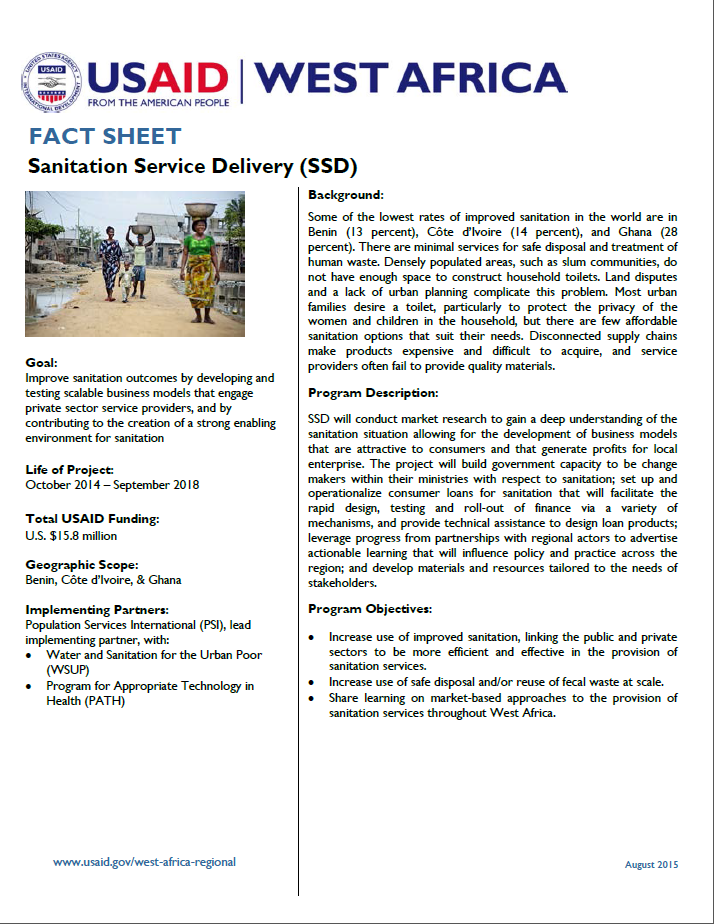Sanitation Service Delivery (SSD) ![]() (pdf - 114k)
(pdf - 114k)
Goal:
Improve sanitation outcomes by developing and testing scalable business models that engage private sector service providers, and by contributing to the creation of a strong enabling environment for sanitation
Life of Project:
October 2014 – September 2018
Total USAID Funding:
U.S. $15.8 million
Geographic Scope:
Benin, Côte d’Ivoire, Ghana
Implementing Partners:
Population Services International (PSI), lead implementing partner, with:
• Water and Sanitation for the Urban Poor (WSUP)
• Program for Appropriate Technology in Health (PATH)
Background:
Some of the lowest rates of improved sanitation in the world are in Benin (13 percent), Côte d’Ivoire (14 percent), and Ghana (28 percent). There are minimal services for safe disposal and treatment of human waste. Densely populated areas, such as slum communities, do not have enough space to construct household toilets. Land disputes and a lack of urban planning complicate this problem. Most urban families desire a toilet, particularly to protect the privacy of the women and children in the household, but there are few affordable sanitation options that suit their needs. Disconnected supply chains make products expensive and difficult to acquire, and service providers often fail to provide quality materials.
Program Description:
SSD will conduct market research to gain a deep understanding of the sanitation situation allowing for the development of business models that are attractive to consumers and that generate profits for local enterprise. The project will build government capacity to be change makers within their ministries with respect to sanitation; set up and operationalize consumer loans for sanitation that will facilitate the rapid design, testing and roll-out of finance via a variety of mechanisms, and provide technical assistance to design loan products; leverage progress from partnerships with regional actors to advertise actionable learning that will influence policy and practice across the region; and develop materials and resources tailored to the needs of stakeholders.
Program Objectives:
• Increase use of improved sanitation, linking the public and private sectors to be more efficient and effective in the provision of sanitation services.
• Increase use of safe disposal and/or reuse of fecal waste at scale.
• Share learning on market-based approaches to the provision of sanitation services throughout West Africa.








Comment
Make a general inquiry or suggest an improvement.